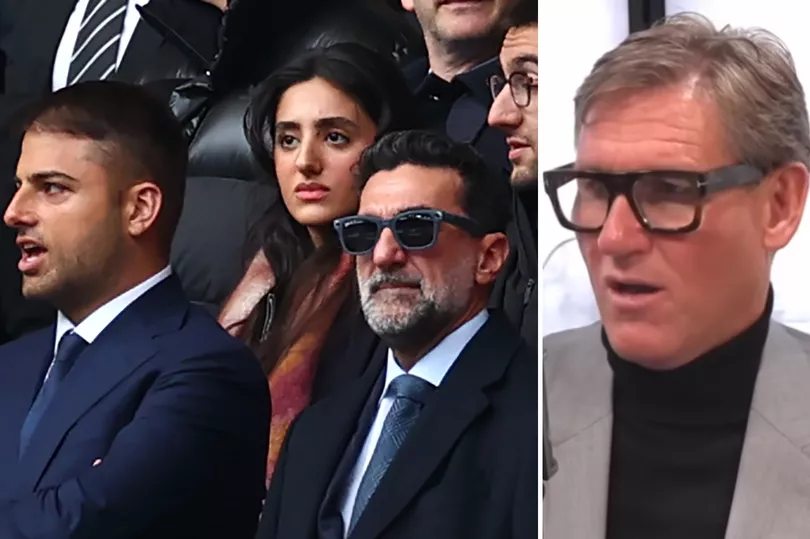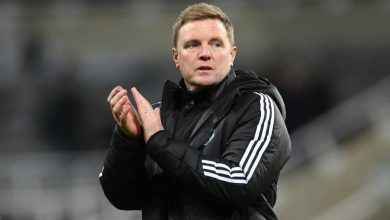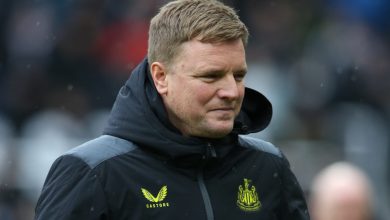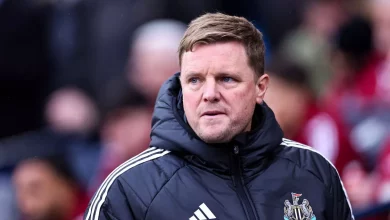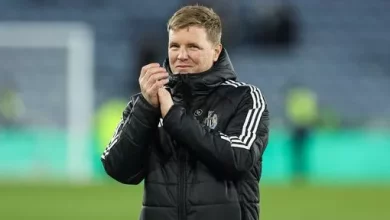Simon Jordan has taken aim at the Premier League’s PSR rules and suggested that Newcastle United will need the ‘patience of a saint’ to eventually win the title.
Although the Premier League are trialing squad cost regulations and top to bottom anchoring in shadow, Newcastle and top-flight clubs continue to be limited to losses of £105m over a rolling three-year period. Aston Villa’s proposal to increase the limit to £135m was shot down last summer – Liverpool CEO Billy Hogan ‘didn’t see the sense in making that change’ – while Manchester United part-owner Sir Jim Ratcliffe has been an outspoken critic of anchoring, a concept which would level the playing field a little.
Premier League chief executive Richard Masters has admitted there is ‘no perfect system out there’ after top-flight clubs decided to wait to vote on new financial rules, but football finance expert Kieran Maguire argued that the current regulations have hit sides like Newcastle ‘hardest’ because permitted losses have not risen in line with inflation since they were introduced back in 2013. Newcastle’s turnover has grown in recent years, to £320.3m, but the Magpies still have a long way to go to bridge the off-the-field gap on the established order and CEO Darren Eales was the first to recognise that PSR was ‘a system that does favour those with the bigger revenues’.
It is approaching two years since Newcastle have strengthened their starting line-up and Jordan, who has repeatedly slammed the Premier League’s ‘cartel’, said it was ‘not right’ that the Magpies have been unable to spend to the extent that previous disruptors have.
“We should get rid of this sham and this charade that is PSR,” the former Crystal Palace owner told talkSPORT. “Whether they tighten the rules up, they should be looking at the bigger picture, which is, what is PSR actually doing? What has it achieved? What did it do for football? Who has it prevented from having challenges? What has it given to the rest of football?
“It’s done nothing besides making the most competitive financially well-heeled league in the world become less progressive in its thinking. The very nature of the Premier League was built out of ambition. If you’re an owner and you want to spend money on your football club, you now can’t.
“I’m arguing for the fact that we built a Premier League that is remarkably successful so what has PSR achieved? What it has predominantly achieved is ensuring those who are at the top of the pyramid stay there because no one else can really get there, can they? How are Newcastle going to get there without a very sustained period of time? They’re going to have to have the patience of a saint.
“Yes, they have done well this year. They have got the League Cup and they are going to go into Europe next season but to win the Premier League, they need the kind of investment that Man City and Chelsea were allowed to have, that Blackburn were allowed to have.
“The one outlier in all of this is Leicester but most of the time the team that wins the league is one of the sides that has the most money and they are able to build from that. How are you going to get to a £500m, £600m turnover? How are you going to achieve it?
“In order to achieve it you have got to win football matches. To win football matches, you have got to have players. To have better players, you have got to buy them. To be able to buy them, you have to have bigger turnovers and around and around you go.”
Jordan was speaking just a few months after it emerged that an unnamed executive contacted the Premier League on behalf of his club and 10 others to request that notice be given of a vote to introduce a short-term ban on related-party transactions following Newcastle’s takeover. This email was sent five days after the buy-out was finally completed in 2021.
The senior figure in question was cross-examined during Manchester City’s legal dispute with the Premier League and openly admitted that the Newcastle buy-out ‘heightened’ concerns and ‘encouraged the clubs to seek action’. A tribunal panel ultimately found these associated party transaction (APT) rules to be ‘void and unenforceable’, but the new regulations, which were voted through last November, remain in place subject to another legal challenge from Manchester City.
